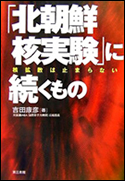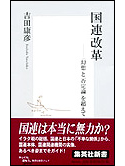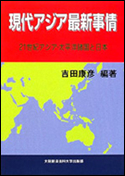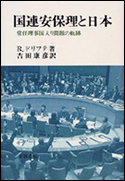North Disgruntled with Seoul’s Policy Change
Mr. Lee Myung-bak, a 66-year-old businessman-turned conservative politician, was installed as South Korea’s new President for a five-year term in Seoul on 25 February. Mr.Lee has immediately started a thorough review of South Korea’s policy toward the North from the viewpoint of profitability. In his key-note speech, Mr.Lee said that there would be no more grant aid to the DPRK but investments only on profitable projects in a realistic consideration. He added he could raise the North’s per capita annual national income up to 3000 US dollars within 10 years, provided Pyongyang should agree on denuclearization and open economy. The denuclearization, Pyongyang says, has nothing to do with Seoul, but only with Washington.
In protest, on 27 March, North Korea expelled South Korean government officials from a joint industrial complex in Kae-song, where some 70 South Korean small and medium-sized business firms have been engaged in production hiring North Korean workers. Mr. Lee’s predecessor, Roh Moon-hyun, had agreed with Kim Jong-il, during their second north-south summit in October 2007, to expand such a complex in the northern territory to further promote north-south reconciliation and economic cooperation. Under the new circumstances, the summit agreement is expected to be cancelled or at least frozen. This undoubtedly offended Pyongyang authorities.
On the following day, 28 March, North Korea launched three or four short-range missiles into the Yellow Sea, west of the Korean Peninsula. The Yonhap News Agency in Seoul reports that those were Soviet-made “Styx” ship-to-ship missiles.
The missile shots came just after the joint military exercises by U.S. and South Korean forces, called “key Resolve” and “Fall Eagle” earlier in March. North Korea fires short-range missiles regularly and the launches often coincide with a deterioration in the political environment over the Korean Peninsula. Mr. Timothy Savage, an analyst at the Nautilus Institute for Security, commented; “This is their way of showing their unhappiness with the current situation and was aimed primarily at South Korea.”
In addition, Pyongyang has cancelled any further dialogue with Seoul at the government-to-government level. The atmosphere is worst in 10 years.
US-North Korea Relations also stalled
The whole process of denuclearization of the Korean Peninsula has been stalled over the differences in view between Pyongyang and Washington. They are at the second stage of denuclearization under the 2/13 agreement in the six-party talks in Beijing. North Korea was to accept disablement of the on-going nuclear facilities in Nyong-byong and to submit “a complete and correct list” of all nuclear programs within its territory.
The disablement work by both North Korean and American engineers with IAEA officials as witness, was going on smoothly and near to be complete. But Pyongyang authorities on 28 March threatened to stop the disablement process unless Washington drops its “unjust” demands over the list.
The Bush Administration demands that the list include the alleged clandestine uranium enrichment program and also the alleged export of nuclear technology to Syria, both of which Pyongyang denies categorically. It was in September 2007 that Israeli fighter-bombers made an air raid on a military target in Syria, which was reported to be a nuclear power station being constructed with North Korea’s technical aid.
“If the U.S. keeps insisting what does not exist and delays the settlement of the nuclear issue, it would have a serious impact on the disablement process as well,” a North Korean Foreign Ministry spokesman said in a statement issued on 28 March. “We can never be a scapegoat for justifying a wrong assertion by the Bush Administration,” he added.
In the view of Pyongyang, it is the Bush Administration to blame. Under the Beijing Agreement, the denuclearization process is to be implemented with the principle of simultaneous action. Therefore, Pyongyang claims that Washington is obliged to remove North Korea from the list of terrorist-sponsoring nations, which the Bush Administration has not done yet. Mutual distrust and lack of confidence are believed to be behind the current stalemate.
Informed sources indicate that Pyongyang believes they are in an advantageous position in bargaining with Washington, as the second term of the Bush Administration is to expire in less than one year. In this context, South Korea’s new Foreign Minister has told reporters in Seoul that the whole process would have to be completed by the end of August, when new American Presidential candidates are selected and when Mr. George Bush completely becomes a lame-duck. The Presidential election is to be held on 4 November.
Mr. Kim Jong-il is highly likely to accept total abolition of nuclear weapons and materials, provided that Washington faithfully implements removal of the DPRK from the list of terrorist-sponsoring nations and thus normalizes diplomatic relations between the two countries by signing a peace treaty, putting an end to half-a-century-old Korean War. There needs mutual trust and confidence.
Difficulties ahead are deep distrust harbored by the so-called neo-conservatives in Washington, who doubt that Kim Jong-il would abandon nuclear ambitions and firmly believe that the only solution would be to topple the Kim Jong-il regime. Prospect, therefore, hinges upon whether President Bush could eventually overcome the sabotage by the neo-conservatives in Washington.
Prime Minister FUKUDA ready to extend Japan’s economic sanctions
Prime Minister FUKUDA Takeo has decided to extend Japan’s economic sanctions against the DPRK for the third time for another six-month period until October 2008, because of alleged negligence in settling the abduction issue on the part of North Korea. The sanctions are to expire on 13 April 2008.
The sanctions, introduced in October 2006 in protest against Pyongyang’s first nuclear test, was extended twice in April and October 2007, not to give pressure on North Korea to abandon its nuclear armament, but to give in to Japan in finding a solution to the abduction issue. The solution on Japan’s terms is to revive and return all the Japanese abductees, whom Pyongyang has announced “dead.”
The extension is expected to serve nothing or even counter-productive at a time when the US and DPRK have been trying to iron out their differences over the controversial list of all the North Korean nuclear programs. Washington insists upon Pyongyang’s acknowledgement of a uranium enrichment program and the alleged export of nuclear technology to Syria. North Korea’s chief negotiator, Kim Kye-gwan, however, has been denying both of Washington’s allegations, saying that such a program and the alleged export have not existed, do not exist or will not exist, as stated above.
The core of Japan’s sanctions is to ban the Man-Gyon-bong 92, a main steamer , and all the other vessels cruising between Japan and North Korea, from visiting Japanese ports. All bilateral trade has been brought to nil, in addition to prohibition of money transactions between the two countries.
Japanese Government continues to crack down on Chosen-Soren
Prime Minister FUKUDA remains unchanged in his confrontation policy toward North Korea, as he has not softened his predecessor’s hostile policy lines. Giving priority to solution of the abduction issue in dealing with Pyongyang, he acquiesced police’s action to arrest two senior Korean businessmen in Chosen-Soren’s Kyoto Chapter in January, after mobilizing nearly 90 armed policemen to search the businessmen’s building of the Kyoto Chapter for more than 5 hours.
Earlier in January, the Osaka Prosecutors’ Office passed a verdict to sell the land and the building of Chosen-Soren’s Osaka Chapter by auction. The Tokyo Chapter and Aichi Chapter were precedent cases; they also lost their real estate and office buildings after their own banks had been declared bankrupt.
The sole remaining target is the Central Headquarters of Chosen-Soren in Fujimi, downtown Tokyo, already seized by a government agency to cover their standing debt estimated at some 500,000,000 yen, is to be sold by auction, some time in future.
This was in line with Japan’s suppressive policy adopted by FUKUDA’s predecessor ABE Shinzo, who had declared that Chosen-Soren should be disorganized within 5 years, thus leading to an eventual collapse of the Kim Jong-Il regime in Pyongyang, which he believed has relied on substantial financial aid from Chosen-Soren. However, this expectation is likely to be an illusion.
There is no possibility of the Kim Jong-il regime collapsing and creating chaos in Northeast Asia. China never ceases economic and financial aid and even South Korea, with its new President, is prepared to sustain the North by all means to avoid confusion. Only Japan takes an irresponsible and indifferent attitude.
Trade between China and North Korea is ever on an increase. Total figure amounted to nearly two-billion US dollars in 2007, adequately making up for the loss in Japan-North Korea trade.
Interim Conclusions
North Korea is apparently examining the seriousness of the Bush Administration in normalizing relations with Pyongyang, which, though, is ready to eventually abandon its nuclear programs. The principle of simultaneous action on a reciprocal basis, as agreed in the Beijing six-party talks, is at stake. The deadline of the whole scheme is August.
The question is that President George Bush, apparently less enthusiastic about denuclearization of the Korean Peninsula, is only seeking to avoid aggravation of crisis. It was during a banquet in Washington on 7 March that Mr. Bush was singing a song; “I will enjoy a happy-go-lucky life back in Texas, no more bothering about nuclear missiles flying from Pyongyang…..”
South Korea is less enthusiastic about its aid to the North, with Lee Myung-bak, new President, introducing a business model in his North-South policy, meaning withdrawal from unconditional and unilateral aid from the South to the North. Revival of hostility and confrontation, however, is unlikely to happen.
Japan, maintaining hostility and hatred, is to extend its economic sanctions against the DPRK over the unsettled abduction issue. Prime Minister FUKUDA, isolated in the six-party talks as well as in Japan’s ruling Liberal-Democratic Party, is apparently immobilized in his policy-making power in trying to settle the abduction case. No breakthrough therefore is in sight. (2008-4-5)









